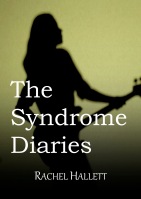In her 1934 classic, ‘Becoming a Writer’, Dorothea Brande suggests that writers should cultivate ‘two persons’ within themselves: one should be practical and objective, the other sensitive and creative. We are often so caught up with the latter as we write that the pragmatist side – which is far more use for getting our work improved and noticed – is neglected.
One way of addressing that is to join a writers’ group. It’s tempting to hone, edit and generally tweak writing around for years, but constructive feedback from a critical audience is vital to help make the finished work as good as it can be. More fundamentally, if you are serious about getting your writing read by others, you need to be used to negative as well as positive feedback. You can’t be to everyone’s taste, however good a writer you are.
I admit that my instinct has always been to go it alone (I still have the school report from when I was 9, which said I preferred my own ideas to those of others, and never was a truer word spoken…). I’d lasted a couple of weeks on a 10-week creative writing course some years back, largely because it felt like being back at school; disciplined, rigorous and, as a newbie writer, I struggled to engage with the highly critical environment (or, to be more accurate, the highly critical tutor). Ever since then, I’ve avoided anything combining writing and groups, but my New Year’s Resolution was to start going outside my comfort zone, and the writing group had to be done. I went online to the Meetup website, found this group http://www.meetup.com/Writers-Connect-Manchester/ and went along to a meeting.
It wasn’t like school. We sat in easy chairs in Costa, and I wasn’t the only first-timer, and nor was I the only one worrying about what might be coming next. We started off with a writing exercise, then went round the group, reading out our efforts. Mine was OK – some of the writing was better than mine, but I still felt I could hold my own. We critiqued another member’s poem (rather good, and written in her second language). I came away wondering how a prepared extract of my writing would fare. The next meeting, I took a few pages of my novel along.
Altogether, I had four pages of writing. I thought it might be a little long, but at the end of the first page, they were happy for me to keep going, so I did. As I finished the last sentence, there was a long silence. That was the worst moment: I wondered if I was about to be taken down a few pegs and put firmly in my place as a beginner. But that wasn’t the case. I think it may just have been that general reluctance we often have to be the first one to speak, and once we started discussing the passage, I got some really helpful feedback on adding some detail and taking a little away. We talked about the kind of market it would appeal to – perhaps a little narrower than I’d first hoped, but realistic, and, as I said earlier, you aren’t going to be everyone’s cup of tea. There were some positive comments too, regarding the way I’d used the characters to create a sense of awkwardness. It’s one thing to feel a particular mood as you write a scene, but quite another thing to be sure that others can also sense the same atmosphere, so feedback was important here.
I came home feeling pleased I’d had the guts to have my work dissected, and still more pleased that it had generated such useful critiques. I revised the passage, and you can read it here http://www.rachelhallettwriter.co.uk/page_2629079.html. Stepping outside your comfort zone is easily avoided, but once you’ve done it, you see the rewards. I’m trying to more of it in everyday life – to say yes when my instinct is to say “Aaargh!”, and I’m having a lot of fun.



